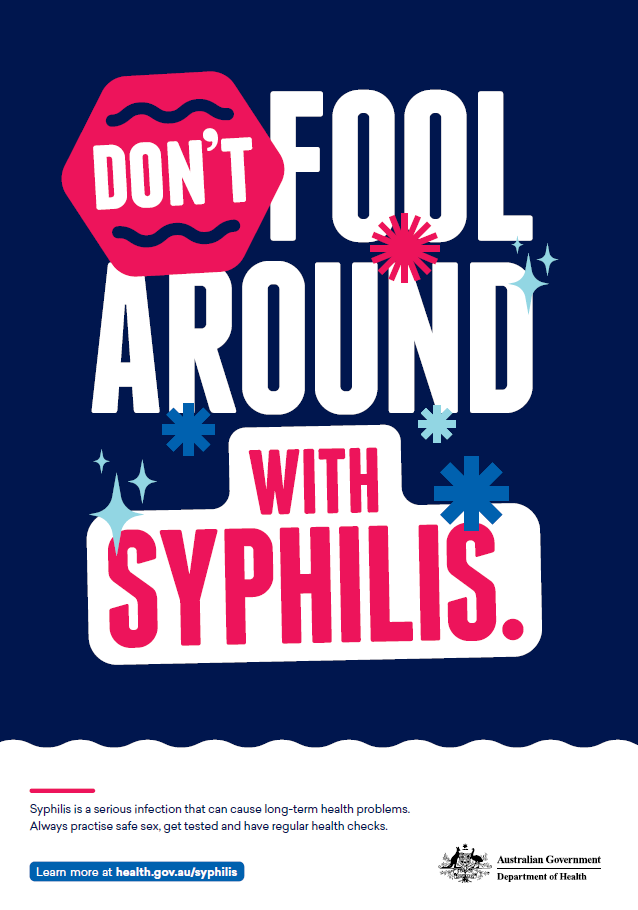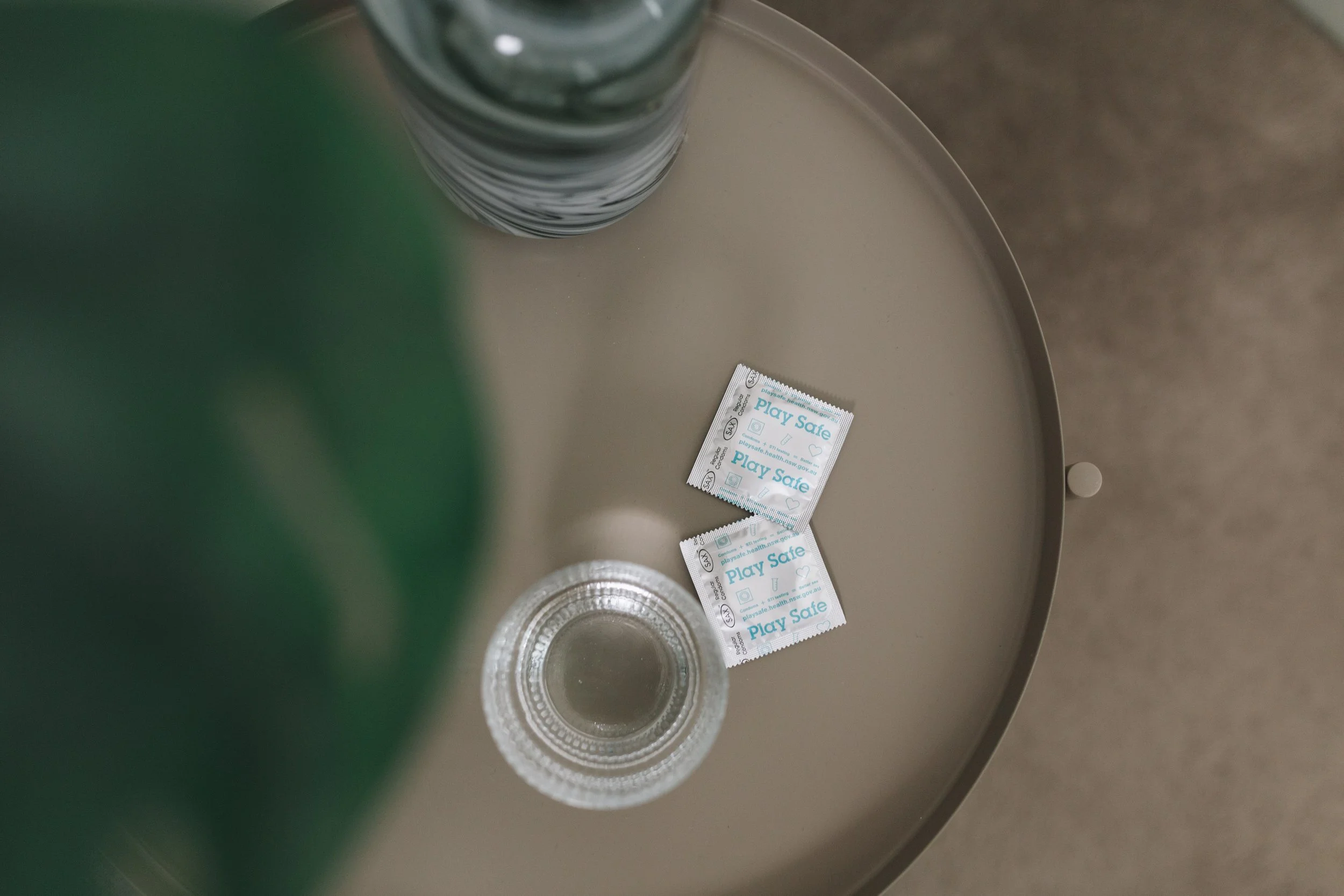Know your Sexual Rights
October 2024
Hi Caddyshackers
I reckon we’ve all heard of, or know of, our rights. Things like human rights, civil rights, rights to voice and expression. The history of human rights is a complex and multifaceted story that spans centuries and encompasses various cultural, philosophical, and political developments.
Feeling deep dive nerdy about this? The United Nations and the Australian Human Rights Commission are good places to start.
Back to our favourite content area. Do you know about your sexual and reproductive health rights? These address a wide range of issues related to sexuality and gender, and often intersect with several other human rights.
Sexual and reproductive health rights implies that people of all genders can have a satisfying and safe sex life and that they have the capability to reproduce and the freedom to decide if, when and how often to do so.
Examples of sexual and reproductive health rights issues include (but are not limited to):
Comprehensive sexuality education
Criminalization and other restrictions on safe abortion
Gender based discrimination
Early and forced marriage
Female genital mutilation
Gender-based violence
Gender equality
Gender identities and expressions
HIV/AIDS
Maternal morbidity & mortality
Reproductive rights
Rights of intersex people
Rights of sex workers
Sexual orientation
Sexual rights of young people
The Declaration of Sexual Rights
In recognition that sexual rights are essential for the achievement of the highest attainable sexual health, the World Association for Sexual Health developed a Declaration of Sexual Rights.
The declaration states that sexual rights are grounded in universal human rights that are already recognized in international and regional human rights documents, in national constitutions and laws, human rights standards and principles, and in scientific knowledge related to human sexuality and sexual health.
It affirms that sexuality is a central aspect of being human throughout life, encompasses sex, gender identities and roles, sexual orientation, eroticism, pleasure, intimacy, and reproduction. Sexuality is experienced and expressed in thoughts, fantasies, desires, beliefs, attitudes, values, behaviours, practices, roles, and relationships.
While sexuality can include all of these dimensions, not all of them are always experienced or expressed. Sexuality is influenced by the interaction of biological, psychological, social, economic, political, cultural, legal, historical, religious, and spiritual factors.
Lastly, it recognises that sexuality is a source of pleasure and wellbeing and contributes to overall fulfillment and satisfaction.
What are these sexual rights?
The Declaration of sexual rights, lists 16 rights which are closely aligned with human rights more broadly.
Some of the rights which are closely aligned with the work we do here at Caddyshack Project are:
Right 3. The right to autonomy and bodily integrity
Everyone has the right to control and decide freely on matters related to their sexuality and their body. This includes the choice of sexual behaviors, practices, partners, and relationships with due regard to the rights of others. Free and informed decision making requires free and informed consent prior to any sexually related testing, interventions, therapies, surgeries, or research.
At Caddyshack, we spend a lot of time educating about consent and promoting bodily autonomy. This extends into reproductive health, where we believe a person with a uterus has the right to choose pregnancy outcomes.
Right 7. The right to the highest attainable standard of health, including sexual health; with the possibility of pleasurable, satisfying, and safe sexual experiences.
Everyone has the right to the highest attainable level of health and wellbeing in relation to sexuality, including the possibility of pleasurable, satisfying, and safe sexual experiences. This requires the availability, accessibility, acceptability of quality health services and access to the conditions that influence and determine health including sexual health.
We partner with our fab colleagues at the Illawarra Shoalhaven Sexual Health Service to ensure access to sexual health testing, treatment and management.
Right 10. The right to education and the right to comprehensive sexuality education
Comprehensive sexuality education must be age appropriate, scientifically accurate, culturally competent, and grounded in human rights, gender equality, and a positive approach to sexuality and pleasure.
As sexual health promotion officers, this is our bread and butter. We are firm believers in providing education and resources. We’ve said it before, but one our fav resources is ‘Talk Soon, Talk Often’, check it out online here. Great age appropriate guidance for parents and carers of children 0 to 18 years.
What about responsibilities?
We have spoken a lot about sexual rights, and with all rights, come responsibilities.
So what are some responsibilities when it comes to sex and sexuality?
We have a responsibility to keep ourselves and sexual partners safe. This is firstly achieved by ensuring all sex is consensual and secondly that sex is safe i.e. protection such as condoms are used.
It is also a responsibility to ensure regular sexual health check-ups are undertaken and to notify sexual partners of any positive test results.
Why are these responsibilities so important?
Sexually Transmitted Infections (STIs) are on the rise. Yep.
In December 2023, the Kirby Institute released details from their annual STI surveillance reports and distributed their media release titled “Sexually Transmissible Infections are on the rise in Australia, with syphilis rates tripling in a decade”. The Kirby Institute is a world-leading health research unit based at the University of New South Wales (UNSW), Sydney. They work to eliminate infectious diseases, globally. Their research is incredibly important in guiding the work we do in the STI and Blood Borne Virus (BBV) spaces.
Their media release detailed a significant increase in chlamydia cases in 2023, a doubling of gonorrhoea and a tripling of syphilis in the last decade. Kirby Institute epidemiologist, Skye McGregor stated:
“Any rise in STIs is bad news, but rising STIs against a backdrop of decreased testing, and the persistent upward trend over the past decade, is particularly concerning”.
You may have seen some media lately about Mpox on the rise. Mpox is an infection caused by monkeypox virus. NSW is now seeing the largest mpox outbreak in the state since the first case was confirmed in May 2022. Anyone can catch mpox. People who are at highest risk of mpox are men who have sex with men. People with mpox may be infectious up to four days before symptoms start. Vaccination is important to protect people who are at risk. It is a safe and effective way to protect yourself and others against severe illness caused by the virus. Go the NSW Health dedicated page for more info.
STI’s on the Rise?
There are also some sound reasons as to why STI rates are increasing.
Rewind 4 years, to 2020 and the global pandemic, Covid-19 (we know the timelines feel surreal). Since 2019, there has been significantly less testing for STIs and Blood Borne Viruses (BBVs) due to lockdowns, telehealth appointments and now unfortunately cost of living pressures combined with a decline in bulk billing GPs. A decline in STI and BBV testing means that many cases of STIs and BBVs go undiagnosed and untreated, and while that is happening, further spread of infections are happening.
Rewind slightly further to 2016, when trials of PrEP (pre-exposure prophylaxis) began in Australia. PrEP is an anti-viral medication that can be taken to reduce the chances of contracting Human Immunodeficiency Virus (HIV). PrEP was listed on the Pharmaceutical Benefit Scheme (PBS) in 2018 and this also correlates with an increase in reported cases of chlamydia, gonorrhoea and syphilis in men having sex with men.
These increases in STI infection rates (numbers) are due to a decrease in condom use and less frequent STI and BBV screening (see above for responsibilities), as the “fear” of contracting HIV was removed. Bacterial STIs such as chlamydia, gonorrhoea and syphilis are all easily treated with antibiotics, so concern around contracting these infections is lower as is sex without a condom.
Men who have Sex with Men (MSM)
Whilst touching on the topic of men who have sex with men, it is perhaps a nice segue to discussing why we use this term instead of “gay” or “homosexual” men.
Sexuality is fluid, meaning a person’s attraction to a partner may change over time. Sometimes their identity may change with their change in sexual partner, but this is not always the case. Not all people’s sexual behaviours (who they are having sex with) matches their sexual identity. Some men who identify as heterosexual will also engage in sex with other men. They may not identify as homosexual or bisexual and often do not identify as being “attracted to males” they are however “attracted” to sex with another man for multiple reasons.
This is where the term men who have sex with men comes into play. Regardless of the identity of the men, men who have sex with other men often have “higher risk sex”. Unprotected (without a condom) anal sex is the riskiest form of sex, as the anus is not self-lubricating, therefore more likely to tear or suffer lesions during sex. These lesions then allow for infections to enter into the body more readily.
For other examples of reasons why men have sex with men, but don’t identify as homosexual or bisexual, read this great article from “The Conversation”. Whilst the article is American, it paints the same picture as what is experienced in Australia.
One more time please check out the dedicated NSW Health Mpox page.
What about the female partners of MSM?
There are supports out there for women whose male sexual partners have had/or are having sex with other men.
Women Partners is a NSW Health funded service that offers individual counselling, support groups and information for all women whose partners are men who have sex with men in NSW.
Women Partners offers safe, non-judgmental support with individual counselling and support groups to all women, upon learning their partner has been sexually engaging with men. They offer a safe space for women to share their stories and perspectives whilst managing unexpected changes in their relationship. All their services are free and confidential.
The women’s partners may identify as gay, bisexual or heterosexual and their actions may have been disclosed or discovered by chance. A lot of women may feel disempowered and lost as they attempt to navigate the myriad feelings that this major change in their relationship status brings which is where Women Partners can help. Download their brochure in English for more information.
What’s being done to curb the rise of STIs?
It’s a great question and it’s what keeps us busy. Part of our role is to provide community education and resources (see Right 10 above) to encourage the use of condoms and regular STI and BBV screening.
In 2023 Caddyshack Project delivered small group education sessions to 994 people, 55 of who elected to complete a chlamydia screen as part of the session. We reached a further 239 people through our online webinars “On The Couch” and partnered online training sessions with Family Planning Australia and Yfoundations. Throughout 2023, we distributed 45,000 condoms (both internal and external), dams and lube sachets. We had 12,000 visits on our website, 686 Instagram fans, 713 Facebook followers and 3,000 views on YouTube.
It’s fair to say we are trying hard to reduce the rates of STIs and BBVs in our patch of the world in the Illawarra and Shoalhaven.
2023 saw a big focus on syphilis and the increasing rates of infection, particularly congenital syphilis which is syphilis that impacts pregnancies and newborn babies.
NSW Health followed on from the Australian Government’s lead and heavily promoted the syphilis campaign “Don’t fool around with syphilis”.
Locally, the Illawarra Shoalhaven Sexual Health Service held a syphilis roundtable workshop in May 2023 to develop an action plan to reduce local rates of syphilis infections, especially looking at preventing congenital syphilis. We also promoted the NSW Heath “Syphilis in Pregnancy and Newborns” policy directive, where changes were made to ante-natal screening for syphilis.
Pregnant people are now offered two syphilis tests during pregnancy and a third test in late pregnancy if considered high risk for infection.
We continue this call to action, particularly for young people aged 15-29 years. The Caddyshack Project’s webpage contains the “Youth Empowerment Tool” which aims to answer some of the questions young people may have around STI testing and how to access it.
NSW Health’s Play Safe website is another great statewide online resource for all things sexual health, STIs and relationships.
What We’re Loving
Right now, well, always really, we are loving the Play Safe “Could I have an STI?” quiz. If you’ve ever had vaginal, oral or anal sex then there is a chance that you could have an STI. This 30 second quiz helps you to better understand your risk and what you can do about it. Using condoms and getting an STI test every 6-12 months is the best way to reduce your risk.
Need a free bag of condoms and lube for your service? You can order a bag of 144 condoms every month for free from NSW Health.
Closer to home, in the Illawarra and Shoalhaven, if you're looking for services that have free condoms available, find them on the Condom Dispenser Project map which shows the 93 participating services that provide free condoms.
Still to come in 2024!
Get your free tickets and be part of the live online audience for upcoming On The Couch episodes. Here is the line up still to come this year!
In October Rachel Wotton with Mohammed Samrah.
In November with Positive Speakers Bureau
Register here
Behind the scenes we turned all our webinars into podcasts which we launched in July. Have a listen on your favourite podcast app, just search On The Couch!
Until next time,
Peace, Love & Protection
x






